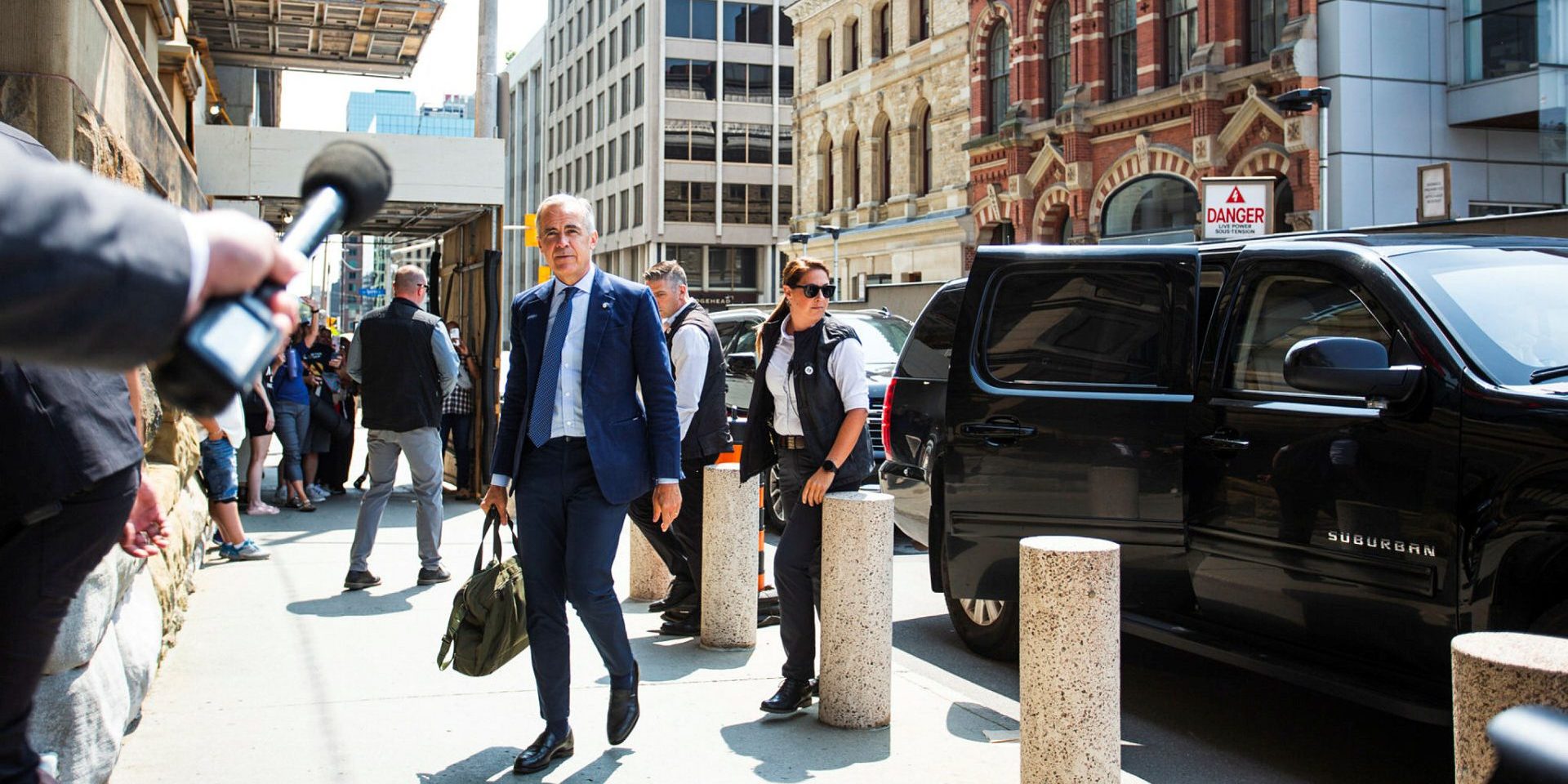Carney still has to tell us what kind of economy he’s trying to create

TORONTO—We have yet to hear from Prime Minister Mark Carney on what kind of economy he and his government are really trying to create. We are told we must adjust to a much more difficult, uncertain, and competitive world. But Carney also boasts that his government will make us an energy superpower and deliver the strongest economy in the G7.
What does that mean and what’s needed to make it happen?
Government spending and priorities are set to shift from consumption—and hence social policies—to investment in infrastructure, defence procurement, and major projects of national benefit are all intended to deliver the promised results. But this is far from a far-reaching plan for transition.
To be sure, the seven government priorities listed in the group mandate letter that Carney sent to his cabinet ministers in May are worthwhile, yet insufficient. They fail to address Canada’s terrible productivity performance.
The seven priorities are: establish a new economic and security relationship with the United States; remove barriers to interprovincial trade; lower living costs for Canadians; make housing more affordable; strengthen sovereignty and safety with higher defence spending, stronger borders, and improved law enforcement; attract the world’s best talent while lowering immigration rates to more sustainable levels; and spend less on government operations so more can be invested in people and businesses.
But there was nothing about an innovation economy, or support for our ambitious entrepreneurs.
In fairness, there are some positive hints fostering innovation. The government says it will build a much stronger defence industrial base, which could open the door to Canadian companies to grow and participate in global value chains. We have a new government department of artificial intelligence and digital innovation, though little is known about its mandate. There is a pledge to put much greater focus on Canadian firms in government procurement—federal needs for enhanced cloud computing are one opportunity, for example.
But in its pronouncements and seeming priorities, the Carney government appears much more focused on the fossil fuel industry, touting oil and gas pipelines, LNG plants, and infrastructure projects to facilitate the oil and gas industry, with “critical minerals” an add-on.
The government’s new Major Projects Office seems to exist to facilitate oil and gas projects, not review them for their environmental, climate and other impacts, or their commercial viability. Moreover, there’s an implicit promise of generous subsidies. At least that’s the impression created. It states that “this is Canada’s opportunity to think big and deliver on projects that will define the next century.”
Oil and gas are going to define the next century?
The recent Global Innovation Index 2025 from the world Intellectual Property Organization (WIPO) highlights the challenges facing this country if we are to successfully transition to an economy that can prosper and generate good jobs. This year, Canada ranks 17th in the index, falling from 14th place last year.
This suggests that other countries are outdoing us in creating a more innovative economy. The onus rests not only on government, though it has a big role to play. Canadian businesses have been too slow to invest in innovation—Canada ranks 13th in innovation inputs such as universities, colleges and in government programs, but ranks 20th in innovation outputs, the extent to which businesses develop new knowledge and talent and use it to create new products and services.
One difficulty is that we are putting too large a share of our wealth and talent into the branch plants of foreign multinationals while doing too little—through procurement or access to long-term capital—to build up a new generation of Canadian-owned firms with scale and scope for the world economy.
One of the reasons is that policymakers and business groups have been slow to recognize the importance of investments in intangible assets. Canada ranks 34th in intangible assets as a share of GDP. The focus has been our underinvestment in tangible assets, such as machinery and equipment, while ignoring underinvestment in intangibles.
But our underinvestment in this area is an even bigger problem. The key to greater investment in productive capacity is more investment in intangibles. It’s not an either/or situation: we need both. Even AI ultimately depends on investments in tangible investments to make everything from high-performance computer chips and ever-more powerful computers, to sensors, and clean and efficient electricity. But it starts with intangibles.
A recent report on investment in intangibles from WIPO underlined this new reality for economic success. “Today’s most valuable companies,” it said, “derive their competitive advantage not from physical capital, but from intangible capital such as R&D, software, data, design, branding, organizational know-how and skilled talent, all creating substantial ecumenic value.”
These investments, it goes on to say, “drive competitive advantage, innovation and customer loyalty in a knowledge economy. Though intangible they fuel economic growth, create high paying jobs and improve living standards.” These investments represent a growing share of global GDP.
Clusters also matter. In its ranking of the world’s top 100 innovation clusters, WIPO said there are three in Canada: Toronto ranked 33rd, Montreal 62nd, and Vancouver 66th. Innovation clusters, it said, “form the beating heart of national innovation systems. These hubs unite top universities, researchers, inventors, venture capitalists and R&D firms in driving forward breakthroughs.”
So what we need from the Carney government is a clear strategy to build up investments by the public and private sectors in the future economy, one based on increased investment in intangible assets, and one where a large share of these assets is owned and controlled by homegrown corporations. This is the new competitive world, and it is where much greater Canadian activity will be needed if we are to be prosperous and sovereign in the future—and able to afford the way of life we aspire to.
David Crane can be reached at crane@interlog.com.
The Hill Times






 LICENSING
LICENSING PODCAST
PODCAST ALERTS
ALERTS


